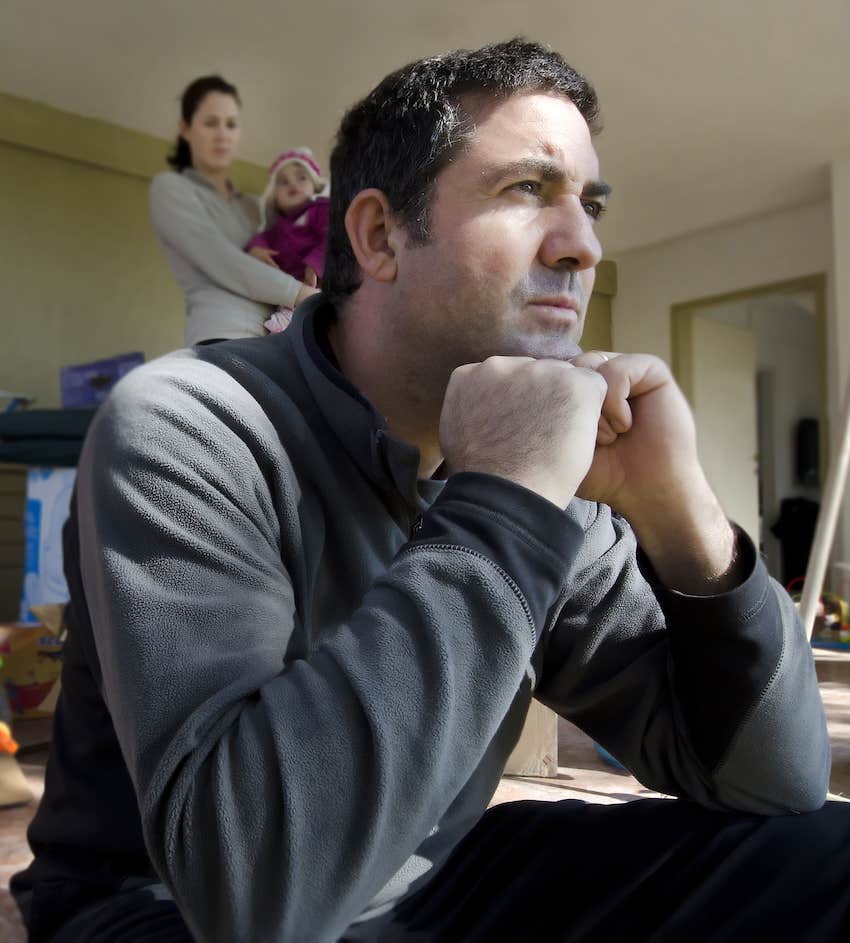Divorce Attorney Shares 3 Phrases To Avoid At All Costs During A Custody Battle
Understanding the goal of the courts can help you avoid the mistakes that may harm you.
 Freeograph | Shutterstock
Freeograph | Shutterstock It’s crucial to keep in mind what is always at the center of a custody battle: the children. However, it’s far too frequently the case that one or both parents become too deeply involved in their own painful emotions surrounding that divorce and act from a place of hurt, anger, or retribution, rather than a place of emotional intelligence that keeps love for the kids at the center.
Here are 3 phrases you should never say during a custody battle
1. “My ex is a failure and a loser!”
Badmouthing your co-parent in front of the children can damage the children’s image of their parent, and by extension, their self-image. To make matters worse, badmouthing your ex in a custody hearing does nothing to convince the judge you’re the reasonable one who should get what they ask for. It also doesn’t assure the judge you’re the best person to entrust the children to.
If you’re verbally abusing your ex in the courtroom, then it’s not a stretch for a judge to imagine you might be capable of verbally abusing a child too.
2. “If you don’t agree, we’ll all just move to Florida and you’ll never see the kids again.”
Judges are like everyone else. At work, they prefer simple tasks far more than complicated ones. If the court sees two loving and reasonable parents who are willing to share parenting responsibilities equally, it becomes a simple matter to create a 50-50 split. This allows the children to flourish as they continue to have meaningful relationships with each parent.
But the job becomes more difficult when a judge has to sort out which parent is the reasonable one, and which parent is trying to gain the upper hand for selfish reasons, or which parent is bent on squabbling in a way that could easily be detrimental to the children who are the heart of the dispute.
Judges know children don’t typically want to be forced into taking sides in their parent’s divorce or to be pulled away from one of their parents and a balanced arrangement is best for all involved.
 ChameleonsEye via Shutterstock
ChameleonsEye via Shutterstock
But anything that makes a judge conclude you are willing to use the children as weapons will also make them conclude you are not a reasonable, cooperative co-parent who comprehends that no child wants to be used as a pawn in their parents’ game. In court, the well-being of children is at the center of what custody judges are tasked with creating.
Any hint a co-parent is keeping their personal interests front and center — whether out of a desire for revenge, spite, or just wanting to resist any sort of compromise with their ex — may turn the court against you.
3. “I’m not going to follow the Court’s orders because I don’t have to!”
Courts dislike seeing a parent so biased in favor of their position, they imagine they’re the judge. Implying certain rules don’t apply to you, or you can pick and choose which rules you will and won’t follow is a sure path to having a judge conclude you’re not focused on what should be a common goal: helping children thrive by creating a fair and equitable arrangement that benefits all parties involved.
Often, when a parent doesn’t get everything they want out of a custody hearing, they jump to the conclusion the judge is somehow unfairly biased against them. But the fact is, judges work in law because they respect the law, and they respect others who do the same. If you fail to abide by an agreed-upon custody arrangement and consistently violate the terms of the agreement, the court will become biased against you — not simply for prejudicial reasons, but because you failed to comply with a court-ordered agreement.
We all have commitments, emergencies, or other things that pop up once in a while to necessitate tweaking a childcare schedule or swapping duties. That is encouraged by the lawyers and the courts. But if there is a consistent, repeated tendency to disregard the written terms of a custody arrangement for no reason beyond not feeling like you want to stick with it, prepare yourself for negative consequences.
The Court, as a neutral party, strives to make decisions that will allow children to continue to have relationships with each of their parents, despite those parents' differences with each other.
Even though you may feel like you are making sacrifices or not getting exactly everything you want out of a custody agreement, if you shift your focus away from your own desires, and focus on the important need of a child to grow up having meaningful relationships with both of their parents, you will begin to see eye-to-eye with the court overseeing your custody case. That, in turn, will move you away from a place of bitter dispute, and toward a place in which you can develop a successful co-parenting relationship.
Holly R. Davis is an accomplished and nationally recognized family law trial attorney with over ten years of experience. A founding partner of Kirker Davis LLP, her legal practice focuses on high-asset divorce, business and professional divorce, custody matters, and complex litigation.

